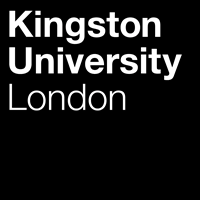About the Project
With the recent increased usage of video services, the focus has recently shifted from traditional Quality of Service (QoS) based video delivery to Quality of Experience (QoE) based video delivery. Over the past 15 years, many video quality assessment metrics have been proposed with the goal to predict the video quality as perceived by the end user. HTTP Adaptive Streaming (HAS) has recently gained much attention and is currently used by the majority of video streaming services such as Netflix and YouTube. HAS, using reliable transport protocols such as TCP, does not suffer from image artefacts due to packet losses, which are common in traditional streaming technologies. Hence, the QoE models developed
for other streaming technologies alone are not sufficient [1]. Recently many works have focused on developing QoE models targeting HAS based applications [2]. Also, the recently published ITU-T Recommendation series P.1203 proposes a parametric bitstream-based model for the quality assessment of progressive download and adaptive audiovisual streaming services over reliable transport.
Machine learning has been proposed in the recent years to develop models for video quality assessment, with promising results [3].
The main goal of this project is to develop new QoE models for HAS based on machine learning, including the most recent video presentation formats (e.g. UHD, HDR, 360 degrees video, light field imaging). The models will consider the information available at the different points of the transmission chain, e.g., both “full reference” and “no reference” models will be considered, the latter in the case when the original video sequence is not available, as for models estimating the quality at the user terminal [4].
The project can include a few months of internship in industry (a major broadcasting or Over The Top (OTT) service provider), either in the UK or abroad, in line with the collaborations in place and being established.
References
[1] W. Robitza, A. Ahmad, P. A. Kara, L. Atzori, M. G. Martini, A. Raake, and L. Sun, “Challenges of future multimedia QoE monitoring for internet service providers,” Multimedia Tools and Applications, pp. 1– 24, June 2017.
[2] N. Barman and M. G. Martini, “QoE Modeling for HTTP Adaptive Video Streaming - A Survey and Open Challenges”, IEEE Access, vol. 7, pp. 30831-30859, 2019.
[3] N. Barman, E. Jammeh, S. A. Ghorashi and M. Martini, “No-reference Video Quality Estimation Based on Machine Learning for Passive Gaming Video Streaming Applications”, IEEE Access, 2019.
[4] A. Ahmad, L. Atzori, and M. G. Martini, “Qualia: A Multilayer Solution for QoE Passive Monitoring at the User Terminal,” in IEEE International Conference on Communications (ICC), (Paris, France), May 2017.

 Continue with Facebook
Continue with Facebook



